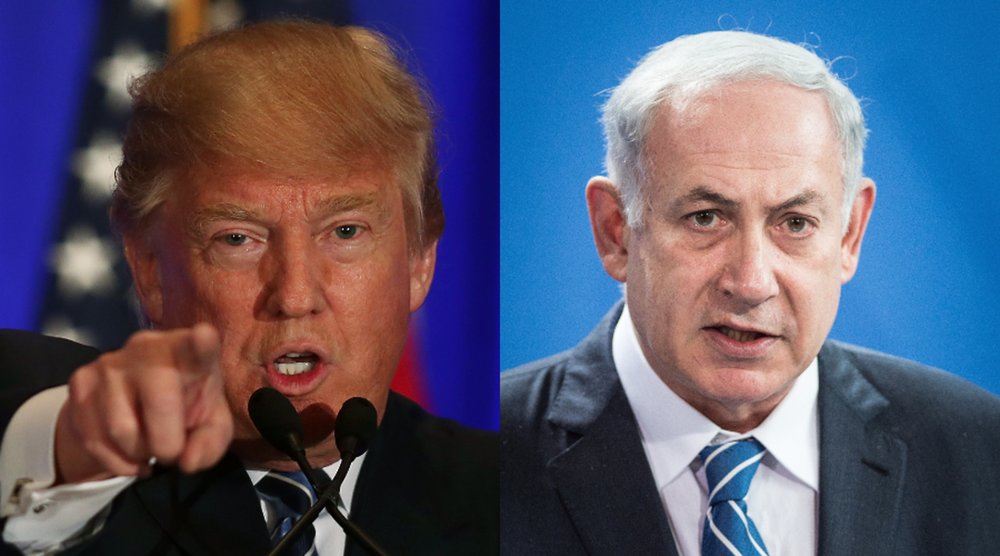Trump, Netanyahu discuss Iran in phone call

U.S. President Donald Trump called Prime Minister of Israel Benjamin Netanyahu on Monday to discuss the Iranian nuclear deal and Iran’s recent missile test, as well as the latest anti-Semitic threats and vandalism in the U.S.
The conversation came following a report that Iran had test-fired a pair of ballistic missiles over the weekend. According to a U.S. official, an American naval vessel was “harassed” by fast Iranian speedboats in the Strait of Hormuz on Monday.
Recently, at an event commemorating 25th anniversary of Buenos Aires Israeli embassy bombing, Netanyahu claimed that “more than 80% of security threats against Israel emanate from Iran”.
During the phone call, Netanyahu also thanked Trump for the warm welcome he gave him during his visit to the White House last month. He expressed his gratitude to the U.S. president for his “forceful statement against anti-Semitism” that he made during a speech last week to a joint meeting of the U.S. Congress.
Netanyahu has been a strong opponent of the Iran nuclear deal. He fought hard to kill the deal during the Obama administration. Now faced with the deal, which has been endorsed by the UN Security Council, Netanyahu is trying to prompt the Trump administration to put sanctions against Iran unrelated to Tehran’s nuclear program.
Trump’s phone call interrupted a police inquiry into Netanyahu, who was being questioned by the police for a fourth time over suspicions of corruption at that very moment.
Netanyahu is a suspect in two cases, one involving the receipt of gifts from businessmen and the other related to conversations he held with an Israeli newspaper publisher about limiting competition in the news sector in exchange for more positive coverage.
However, no charges have yet been brought against Netanyahu, who has been in power since 2009. According to the police chief, the investigation is in its final stages. When it is complete, police will decide whether to close the case or recommend the attorney general to bring charges.
If Netanyahu were indicted, this would most likely lead to his resignation. In 1993 the Supreme Court set a precedent for ministers to step down if they are charged with corruption.
KB/PA
Leave a Comment